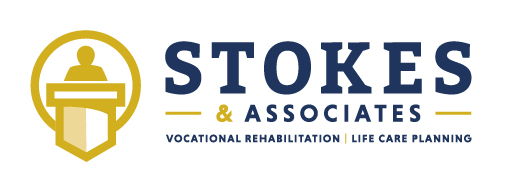Assessing Vocational Capacity of Plaintiffs Receiving Social Security Disability Benefits
When conducting vocational evaluations in personal injury claims, there are instances where the plaintiff is receiving Social Security Disability Income (SSDI) benefits. If the plaintiff has been deemed “disabled” by the Social Security Administration (SSA), the question is whether the individual is permanently disabled from all employment. It is vital to make this assessment in personal injury cases with claims for lost wages or loss of wage-earning capacity.
The Social Security Administration defines disability as “the inability to engage in substantial gainful activity (SGA) due to any medically determinable physical or mental impairment resulting in death or lasting for no less than 12 months.” SGA amounts are usually adjusted annually, with the 2023 amounts for non-blind individuals set at $1,470.00 monthly. Those awarded SSDI benefits can still attempt to work and continue to receive benefits if their earnings do not exceed the SGA amount.
It is necessary to understand the medical basis of SSA’s determination of disability. For many plaintiffs, the award of disability may be based on a combination of impairments that rendered them disabled and not a specific injury or incident, which vocational experts must consider in personal injury claims. For example, a motor vehicle collision resulting in neck or back injuries may limit an individual to sedentary or light-level work. There may also be pre-existing conditions such as diabetes, heart problems, and depression (exacerbated after the MVC), which SSA will consider in evaluating the person’s overall claim for disability. Disability status may be based on multiple impairments and not solely on the injuries to the neck and back.
Another factor is that a plaintiff receiving Social Security benefits may be rendered disabled for a closed period. For example, medical evidence documents that spine surgery was recently performed, and a recovery period of 12-24 months is medically necessary per the records of the treating or consultative physician. Benefits may be awarded for a specified time (closed period). SSA will re-evaluate the claim to determine if significant medical improvement will allow them to perform some substantial gainful activity. In this instance, the disability status is considered temporary.
The SSA’s determination of the claimant’s ability to work is equally important. In addition to any specific restrictions or limitations that may be assigned, transferable skills become a significant factor after the age of fifty. For example, claimants limited to sedentary-level work who do not possess transferable skills for sedentary employment in the regional or national economy may be awarded benefits even though they may be capable of working in unskilled, sedentary occupations.
When evaluating a personal injury case for potential lost wages/loss of wage-earning capacity where the plaintiff receives SSDI benefits, we do not assume the plaintiff is totally disabled from all work. A thorough evaluation by a vocational expert can benefit by offering opinions concerning the vocational outlook, employability, and earning capacity of the plaintiff.
